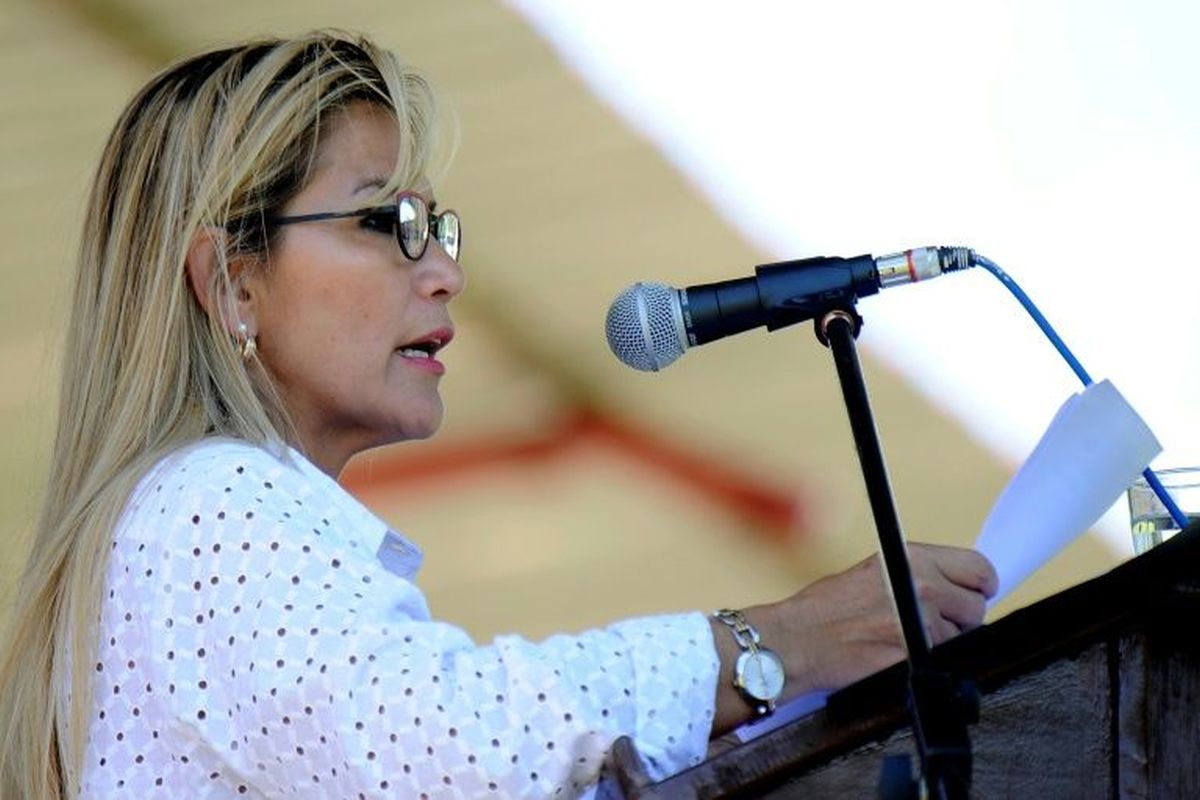India’s top 500 pvt cos value more than total GDP: Report
These companies value higher than the GDP of India and the combined GDPs of UAE, Indonesia, and Spain.
Bolivia was incensed by what it called an attempt by Spanish embassy staff to infiltrate the Mexican mission in La Paz last Friday to extract Quintana, who has been Morales’ right-hand man since his early days in power.

Bolivia's interim president Jeanine Anez said the country's government has declared Mexico's ambassador and two Spanish diplomats "persona non grata" (Photo: AFP)
Bolivia interim president, Jeanine Anez announced on Monday that the country will expel Mexico’s ambassador and two Spanish diplomats, drawing a tit-for-tat response from Madrid as a dispute over an alleged attempt to extract an ex-government aide escalated.
The row broke out after Bolivia’s right-wing interim government accused Spain of attempting to spirit a wanted former aide to ex-president Evo Morales out of the Mexican embassy in La Paz.
Advertisement
Quintana, another ex-minister Wilma Alanoca and the others have all been charged with sedition and terrorism offences by the new government, which has refused them safe passage out of the country.
Advertisement
But Bolivia was incensed by what it called an attempt by Spanish embassy staff to infiltrate the Mexican mission in La Paz last Friday to extract Quintana, who has been Morales’ right-hand man since his early days in power.
Anez further said, “The constitutional government that I preside over has decided to declare persona non grata the ambassador of Mexico in Bolivia, Maria Teresa Mercado, the charge d’affaires of Spain, Cristina Borreguero, and the (Spanish) consul, Alvaro Fernandez”.
She also accused the diplomats of having “seriously harmed the sovereignty and dignity of the people and the constitutional government of Bolivia” and gave them 72 hours to depart.
Last month, Anez declared herself interim president of Bolivia after the armed forces pressured elected head of state Evo Morales into resigning sent a bill to Congress calling for elections in 2020.
Thousands of largely indigenous protesters, many coca leaf growers, had gathered peacefully in Sacaba on Friday morning. But fighting began when many tried to cross a military checkpoint near the city of Cochabamba, where Morales supporters and foes have clashed for weeks.
Morales has been granted asylum in Mexico took to Twitter, saying that a massacre had occurred and he described Bolivia’s interim government as a dictatorship.
Violence had continued as a caravan of buses taking opposition supporters to La Paz was attacked, leaving three people injured, including one by gunfire. Morales lashed out against the OAS mission, accusing it of making a “political decision” instead of a technical one. “Some OAS technicians are at the service of … power groups.”
Morales was declared the winner of the October 20 presidential election with a narrow margin, giving him a controversial fourth term, having first taken power in 2006.
The United States and Brazil, among others, have recognized Anez as interim president, while many in the international community have limited their response to calling for dialogue while declining to take sides.
Mexico’s foreign ministry denounced the “political” decision and said it had instructed Mercado to return home.
Relations with Bolivia have cooled since Mexico offered Morales political asylum and President Andres Manuel Lopez Obrador called the ex-leader the victim of a coup.
Bolivia also warned that Mexico will face a “very serious problem” if its embassy refuses to hand over wanted officials, while Mexico has accused La Paz of “harassment and intimidation” for deploying multiple police and intelligence officers outside the premises as well as overflying it with drones.
Advertisement